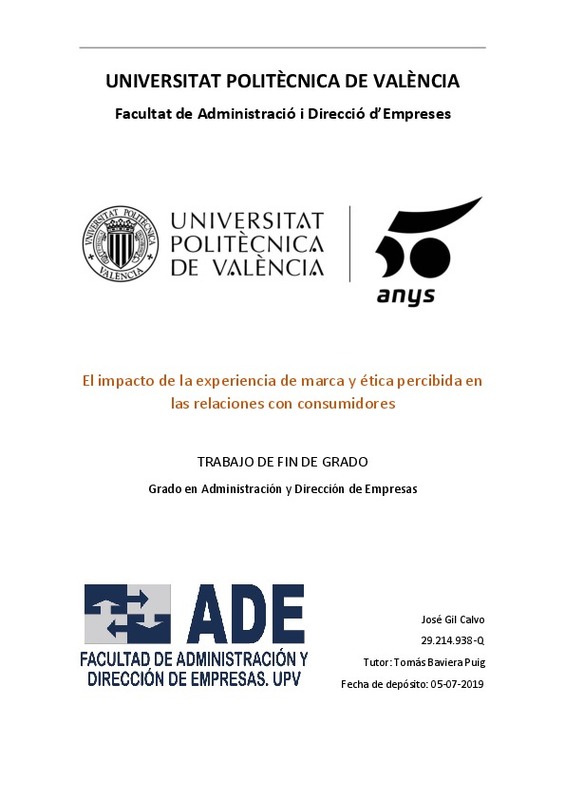JavaScript is disabled for your browser. Some features of this site may not work without it.
Buscar en RiuNet
Listar
Mi cuenta
Estadísticas
Ayuda RiuNet
Admin. UPV
El impacto de la experiencia de marca y ética percibida en las relaciones con consumidores
Mostrar el registro completo del ítem
Gil Calvo, J. (2019). El impacto de la experiencia de marca y ética percibida en las relaciones con consumidores. http://hdl.handle.net/10251/124476
Por favor, use este identificador para citar o enlazar este ítem: http://hdl.handle.net/10251/124476
Ficheros en el ítem
Metadatos del ítem
| Título: | El impacto de la experiencia de marca y ética percibida en las relaciones con consumidores | |||
| Autor: | Gil Calvo, Jose | |||
| Director(es): | ||||
| Fecha acto/lectura: |
|
|||
| Resumen: |
[ES] A lo largo de la última década, los conceptos de Responsabilidad social corporativa (RSC) y la experiencia de marca (XM) se han convertido en unas de las prioridades más estimadas de toda empresa. A pesar de que ambas ...[+]
[EN] Over the past decade, the concepts of Corporate Social Responsibility (CSR) and brand experience (BX) have become some of the most regarded priorities of every company. Even though these new policies are deeply related ...[+]
|
|||
| Palabras clave: |
|
|||
| Derechos de uso: | Reserva de todos los derechos | |||
| Editorial: |
|
|||
| Titulación: |
|
|||
| Tipo: |
|
recommendations
Este ítem aparece en la(s) siguiente(s) colección(ones)
-
ADE - Trabajos académicos [3699]
Facultad de Administración y Dirección de Empresas










